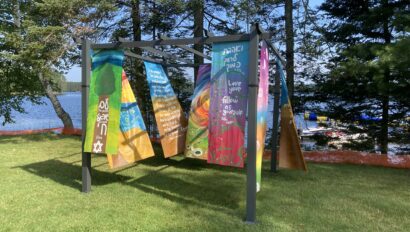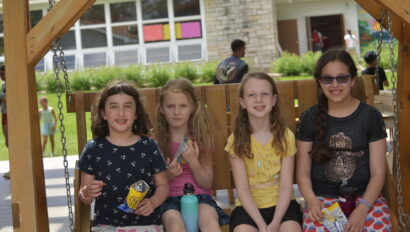It Happens in a Moment
by Jacob Cytryn, Director
Some of them we met years ago at a parlor meeting or a new camper orientation; others when they stepped off the bus for their first summer; others at Kiryat Moriah, one of the Jewish Agency’s campuses in Southern Jerusalem, during a day filled with hectic interviews; others in video interviews or in campus Hillels. On occasion, their parents are family friends or an older sibling is a former camper or colleague. The ties run deep sometimes, and with others our relationships are brand new. And for all of them, the transition is as instantaneous as it is profound. It happens in a single moment.
Yesterday afternoon, a few minutes after finishing lunch and an enthusiastic shirah (song) session in the chadar ochel (dining hall), we headed off to greet the first campers to arrive for the 2018 summer. Two Garinim (5th grade) counselors, upon meeting their campers for the first time, kneeled down, meeting these two boys at eye level, and began talking about mutual interests. The initial connections of male friendships – high-fives, backslaps – ensued a few moments later and the counselors were soon helping these young men, burgeoning Ramahniks, carry their luggage back to their tzrif (cabin) and settle in.
Later in the afternoon a version of the scene repeated itself. As the last few buses arrive, 75% of the campers are already here and our counselors all do their best to be in three places at once, some with campers in the cabin and others outside playing while still others greet the new arrivals with fanfare and excitement in the parking lot. One of our Israeli staff whispers the name of a child they have never met into my ear: “Where is …?” I tell them, and within a second they are shouting their new camper’s name, arms extended and beginning to develop that special camper-counselor relationship.
Last night I participated in what has quickly become one of the most moving moments of the summer for me: the Nivonim (11th grade) campers’ ritual introduction to “the Givah” (hill). After explaining some of the symbolism which connects our old Nivonim campus to the new one we inaugurated last summer, and teaching a chassidic niggun (tune) to a verse from Isaiah written on our ceremonial gate which opens only twice a summer, I turned the key, opened the gate, and – as with many things camp-related – teared up as this amazing group of young men and women walked through the gate, singing quietly and slowly at first and then picking up both the pace and the volume as they reached the top of their home for the next two months. On the last morning of camp they will walk back through that gate, singing and crying, on their way to the buses.
Today, Adina and I spend time with each of our aidot (divisions), (re-)introducing ourselves and playing some games. As I write this we’ve had two such meetings. With one of the older aidot we had the campers go around the circle naming something they’ve learned during their time at camp. The answers were amazing: how to wait a table (be a meltzer); share space; feel more independent; plunge a toilet; speak up for myself; know that my friends will be there for me no matter what; and many more. Twenty minutes later we sat with a younger aidah and we asked them what they were looking forward to most about the summer: woodworking, sailing, stand-up paddleboards, the musical, leading birkat hamazon (blessing after meals), Yom Sport, our new teaching kitchen, the dance festival, and much, much more.
When we look at camp from the beginning, from the outside, we see what the younger kids expressed – so many amazing opportunities ahead of us. When we look back, however, and when we talk to veteran staff and alumni, their memories are of those opportunities being vehicles for far more powerful work on Ramahniks as people, as friends, as Jews, and as members of a community.







